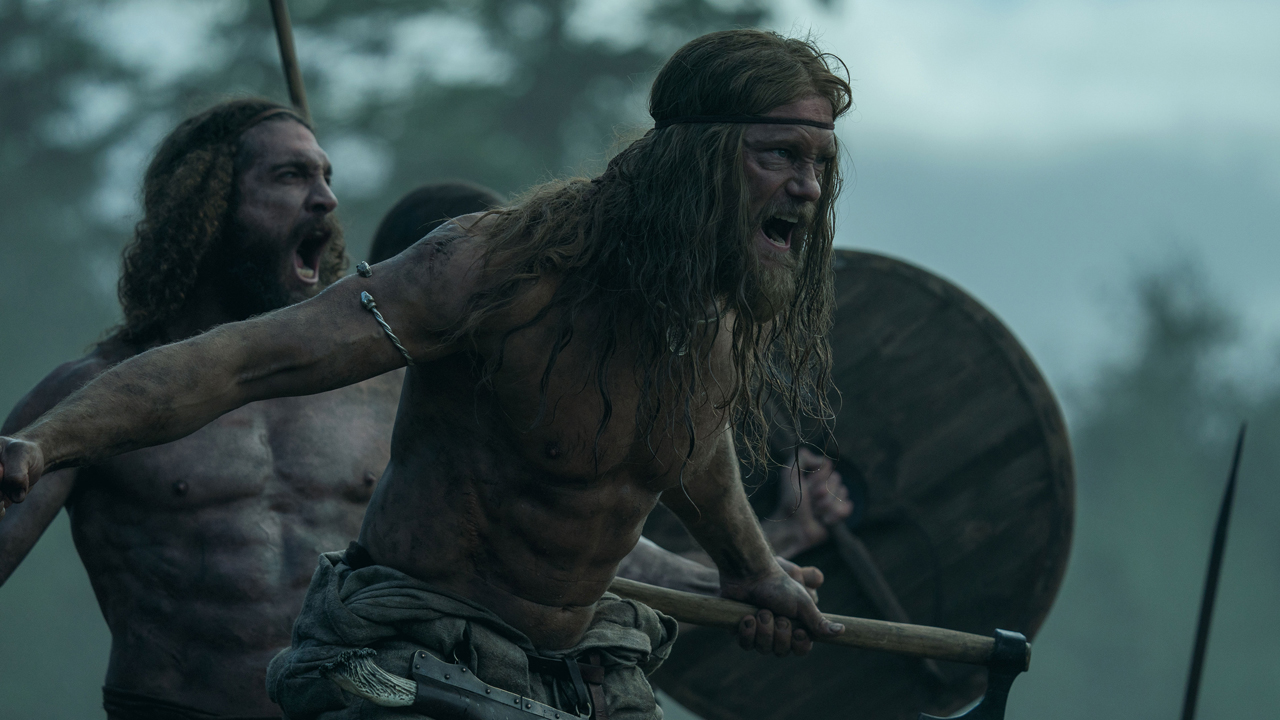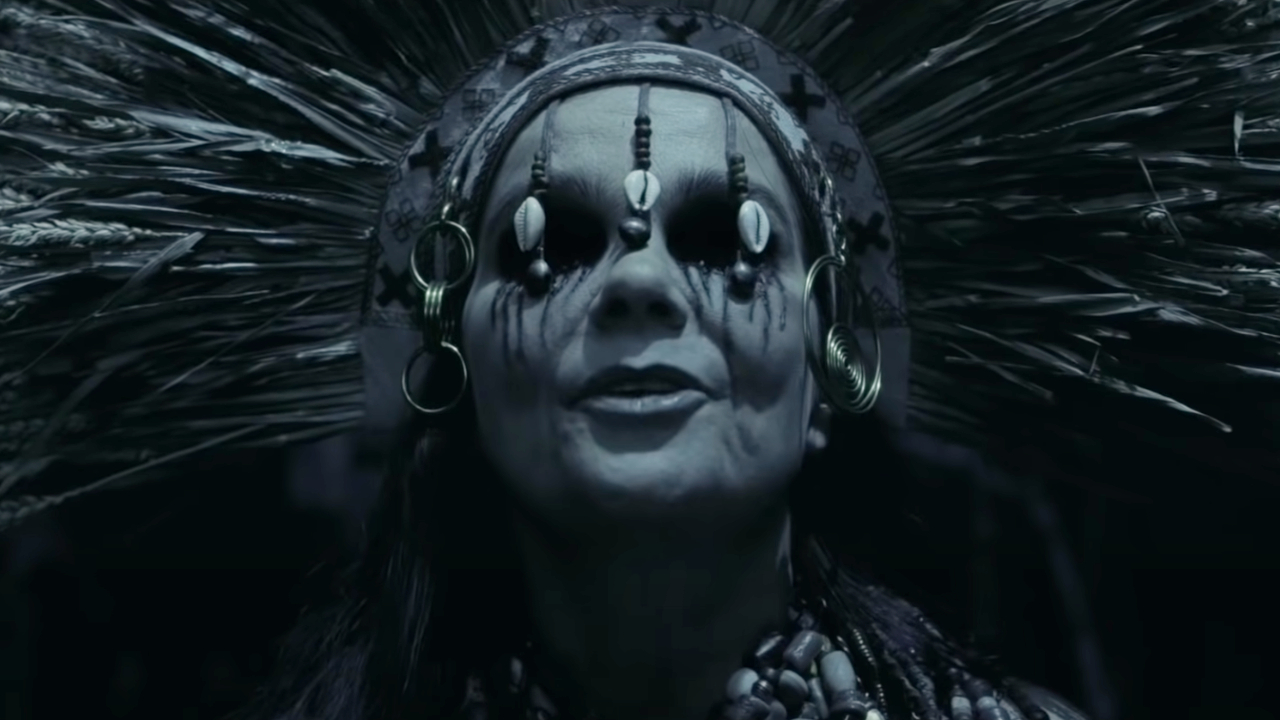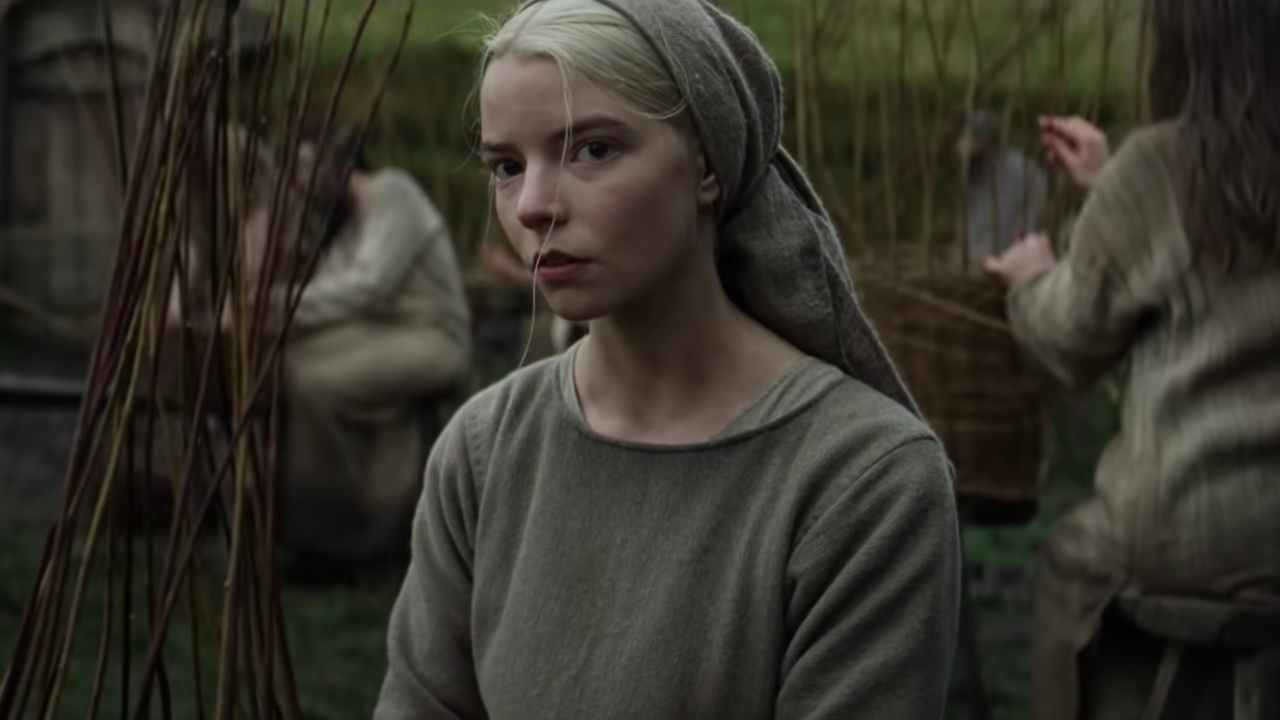The Northman Ending Explained: Examining Amleth’s Revenge In The Viking Epic
Spoilers!

Your Daily Blend of Entertainment News
You are now subscribed
Your newsletter sign-up was successful
SPOILER WARNING: The following article contains major spoilers for The Northman. If you have not yet seen the film, check out CinemaBlend’s spoiler-free review; otherwise, proceed at your own risk!
Revenge is a true double-edged sword. It’s an id-driven act, the goal being retribution for hurt or loss, and there can be satisfaction in the closure that success can provide. At the same time, however, every act of payback requires sacrifice – be it the life that is not lived out of devotion to one’s cause, or in the corruption of an individual’s nature. Because of this, any story about vengeance includes an inherent moral complexity in its ending, and Robert Eggers’ critically acclaimed, The Northman, is no exception.
The film is based on one of the most ancient revenge legends in history – the story of Amleth, which was the inspiration for William Shakespeare’s Hamlet – and it’s executed in brutal and brilliant fashion, all leading to a thrilling and haunting conclusion. It’s certainly not as abstract as what happens in the third act of The Lighthouse – but what happens in The Northman ending, what does it say about the nature of vengeance, and how does Robert Eggers view the outcome of the protagonist’s mission? We get into all of that in this latest edition of our Ending Explained features.

What Happens At The End Of The Northman
For an all-too-brief moment at the beginning of the end of The Northman, Amleth (Alexander Skarsgård) is prepared to abandon his quest for revenge against Fjölnir (Claes Bang), his traitorous uncle who killed his father, and after being magically freed from captivity by a flock of ravens, he escapes with Olga (Anya Taylor-Joy) in a piloted boat.
As Amleth and Olga travel away from Iceland to start a peaceful life elsewhere, the Viking comprehends a vision that he has had, and knows that Olga is pregnant with twins, one of which will be the ruler prophesized by the Seeress (Björk). This moment of clarity inspires Amleth to jump out of the boat and swim back to Fjölnir, saying that “we cannot escape our fate,” and telling the man steering the boat to take the mother of his children to shore.
Back at Fjölnir’s farm, Amleth frees all of the slaves and kills his uncle’s guards before making his way back to the leader’s chambers – but there he is attacked by Queen Gudrún (Nicole Kidman). Not wanting to hurt his mother, but also needing to stop her from killing him, he defends himself, and winds up killing her. His half-brother Gunnar (Elliott Rose) comes in and tries to attack the protagonist, and Amleth has to kill him as well.
When Fjölnir does finally arrive and sees his dead wife and son, he isn’t filled with rage and doesn’t attack Amleth; he instead sheathes his sword and leans down to pick up the bodies of those he loves. He tells the Viking, “I will see you at the gates of Hel,” and Amleth responds, “At the gates of Hel, you will find me.”
Your Daily Blend of Entertainment News
The metaphorical Hel where they meet is at the base of the erupting volcano Heka, and while Amleth is injured from wounds sustained during his encounter with Gudrún, they face off in a dual to the death. The swordfight results in both men losing their lives, with Amleth run through the chest, and Fjölnir’s head cut off – just as the antagonist did to King Aurvandill War-Raven (Ethan Hawke). As Amleth dies, he has a vision of Olga with his children, and he is collected by a Valkyrie to be taken to Valhalla.

What The Northman Says About The Nature Of Revenge
Early in The Northman, a young Amleth makes a vow to his father: if King Aurvandill War-Raven should fall by an enemy’s sword, his son will avenge him or forever live in disgrace. Ultimately, Amleth proves himself true to his word, as he does successfully slay Fjölnir and he is rewarded with a ride into Valhalla… but is the cost of his vengeance worth the victory?
It could be described as noble that Amleth keeps his promise to the king despite everything that tries to stop or dissuade him – but another accurate descriptor is stubborn. Over the course of his journey, the protagonist is frequently confronted with his own misconceptions and given great reason to end his payback mission, but he ignores them all in favor of a practically blind allegiance to a father that he barely knew. He puts aside the revelation from his mother that she ordered King Aurvandill War-Raven’s assassination, and doesn’t let the love of Olga fully penetrate his heart.
So what comes of his revenge? He murders his own mother and young half-brother, he dies, and he never gets to witness the birth and maturity of his twins, one of whom is destined to rule. This is not a happy ending, even if it does end with the hero flying to Viking heaven. What Amleth sacrifices – which includes his entire adulthood in addition to everything else mentioned – is too great for what becomes of him.

How Robert Eggers Views The Ending Of The Northman
There are, of course, different reads that audiences can have about The Northman ending – it’s all subjective, and you can get out of it what you bring into it – but in the mind of writer/director Robert Eggers, the conclusion of the Viking epic is not really meant to be viewed as a big win for Amleth.
I interviewed Robert Eggers prior to the release of The Northman during the film’s virtual press day, and I asked him about the movie’s depiction of masculinity – particularly given all of the “macho stuff” Vikings are associated with in pop culture. As part of his answer, he explained how he approached the ending and how he views the conclusion of Amleth’s journey. You can watch a clip from our discussion in the video below:
Starring Alexander Skarsgård, Nicole Kidman, Anya Taylor-Joy, Ethan Hawke, Claes Bang, Björk, and Willem Dafoe, The Northman is now playing in theaters everywhere, and you can find local showtimes on the film’s official website. Read about the 2022 movie releases to discover all of the features that are set to be released both on the big screen and streaming between now and the end of December.

Eric Eisenberg is the Assistant Managing Editor at CinemaBlend. After graduating Boston University and earning a bachelor’s degree in journalism, he took a part-time job as a staff writer for CinemaBlend, and after six months was offered the opportunity to move to Los Angeles and take on a newly created West Coast Editor position. Over a decade later, he's continuing to advance his interests and expertise. In addition to conducting filmmaker interviews and contributing to the news and feature content of the site, Eric also oversees the Movie Reviews section, writes the the weekend box office report (published Sundays), and is the site's resident Stephen King expert. He has two King-related columns.
